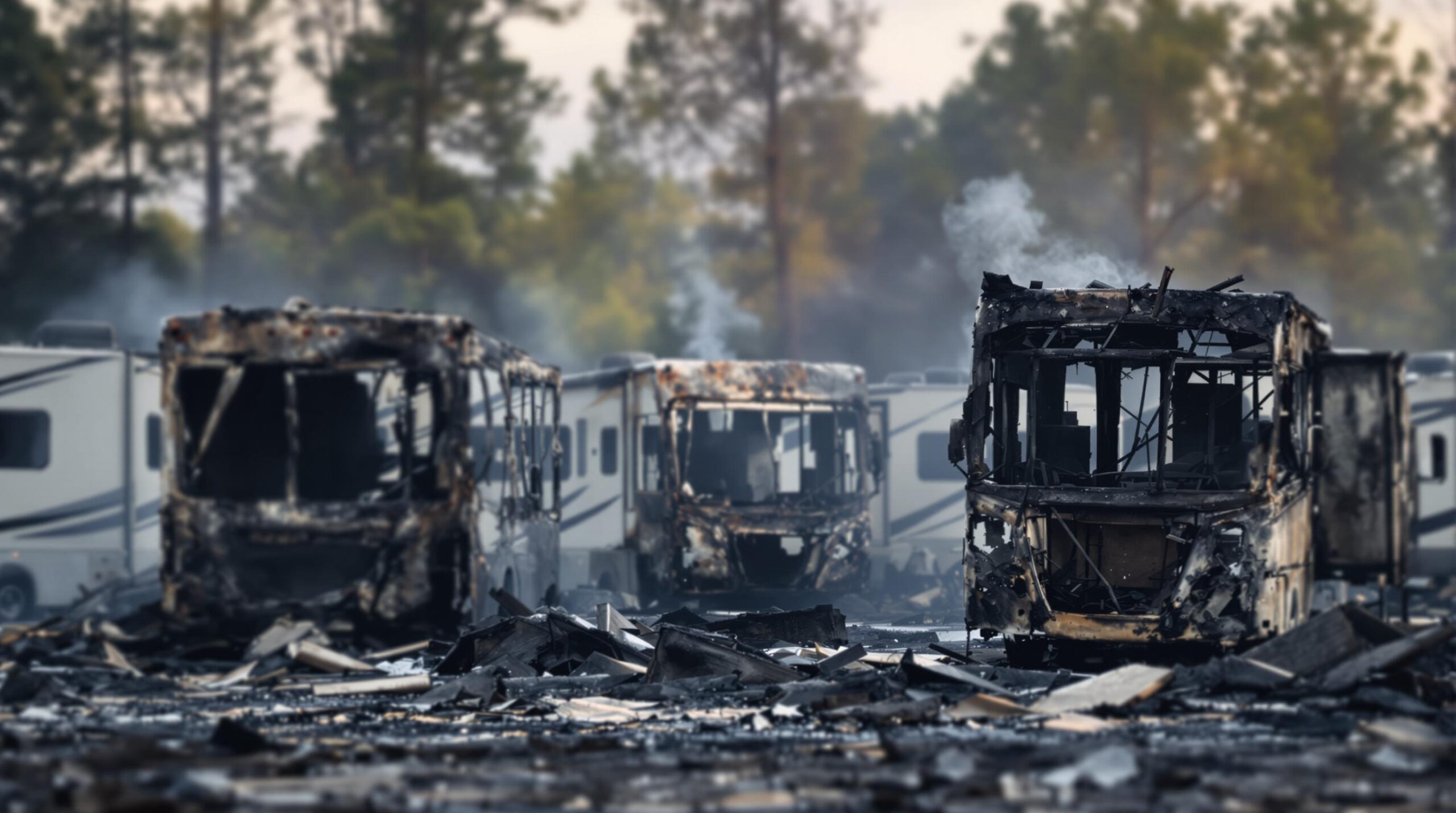Authorities rushed to a campground in Mineola Township on April 16 following reports of burning leaves spreading dangerously close to multiple recreational vehicles. Fire crews arrived to discover several campers in flames, prompting an immediate effort to ensure no individuals were inside. The cause of the blaze has not been officially determined. Investigators suspect that improperly discarded smoking materials may have ignited leaves near the site, though the investigation remains ongoing.
Initial dispatch calls placed the first responders on scene at about 4:15 p.m., a detail noted in an early summary. Officials at the location quickly confirmed that no occupants were inside the burning RVs. Firefighters then focused on preventing the flames from spreading to additional parts of the property.
As outer units of the campground became threatened, Zumbrota police requested aid from Wanamingo Fire Department to bring in more water and manpower. Response teams from Goodhue County Sheriff’s Office and Zumbrota Area Ambulance provided additional support. Each agency worked together to bring the situation under control.
Another account provided further details regarding how quickly the fire moved among the rows of RVs. By around 5 p.m., the worst of the flames was contained. The damage, however, appeared severe, with several vehicles considered total losses.
In the hours after the incident, investigators began examining whether improperly discarded cigarettes played a role in starting the fire. No official conclusion has been announced, but authorities have indicated they are looking into the possibility that such materials might have sparked the blaze. While no injuries were reported, many who frequent the campground noted that even a small ember may have ignited nearby dry foliage.
The destruction prompted discussions about preventing recurrences of such incidents on campgrounds. Some operators designate well-marked receptacles in centralized areas, aiming to deter the toss of cigarette butts into brush or trash bins. Others post reminders around entrances, common areas, and trash points to encourage careful disposal and reduce potential hazards.
Establishing regular training can further reduce risks. Employees who know how to spot discarded smoking materials near foliage or combustible supplies can raise the alarm sooner, stopping a small spark from escalating. Basic awareness of portable fire extinguishers and immediate calls for help have proven essential in halting flames before they cause extensive damage.
Beyond prevention measures, enhanced firefighting strategies can offer another layer of defense. Campground operators often install dry hydrants or accessible water sources at points around the property, streamlining the supply of water to fire trucks. Routine checks on smoke alarms and early detection systems in common structures or near RV units also give guests and staff earlier warnings should a blaze occur.
Coordinating with local emergency services through periodic site visits and safety drills reinforces the relationship between staff and first responders. This approach may lead to faster rescue efforts and greater preparedness during genuine emergencies. Sending out mobile alerts to all guests when a threat appears also helps them evacuate promptly.
Many campgrounds, in addition to posting instructions for safe disposal of smoking materials, emphasize the need for staff and guests to remain vigilant for stray ashes near flammable objects. Placing visible notices at entry gates and around common areas can be a useful technique in minimizing careless habits. Such reminders work best when followed by easily identified receptacles where cigarette butts can be discarded without risking a larger fire.
Strategies for reducing fire risks can also include refresher sessions that cover how to handle fire extinguishers and whenever to contact emergency services. Identifying hazards early, such as discarded smoking materials or accumulating debris near propane tanks, can keep a minor incident from spreading rapidly. Clear communication of campground rules and step-by-step training instills efficient preparedness among everyone on-site.
Some data from the National Fire Protection Association indicates that outdoor hospitality settings experience numerous fires sparked by discarded cigarettes each year, contributing to substantial property damage. While specific statistics vary based on region and reporting methods, these incidents underscore the importance of consistent fire-prevention policies across campgrounds.
The U.S. Fire Administration, meanwhile, has found that the presence of strategic water supplies, such as dry hydrants, generally lowers response times and curtails property losses in fire emergencies. By ensuring multiple hydrants or water distribution points are available, operators can limit the spread of a blaze and allow firefighters to concentrate on extinguishing affected areas rather than shuttling resources across long distances.
In the aftermath of the blaze at Shades of Sherwood, ongoing scrutiny highlights the importance of protective steps ranging from prevention to rapid response. While investigators continue to piece together final details, property owners and managers everywhere can review their readiness plans. Simple adjustments, such as clearly labeling designated smoking stations and installing detection devices, can make a significant difference.
No injuries in Mineola Township prompted relief that the situation did not end with worse consequences. Still, the destruction of multiple campers demonstrates the dangers posed by flammable materials near campground sites. A single spark left unchecked can become a major emergency in mere minutes.
Ultimately, this incident stands as a reminder that strict adherence to safe smoking practices and well-coordinated emergency responses are indispensable at outdoor retreats. With no severe casualties reported, officials called the outcome relatively fortunate, but the event remains an example of how quickly damage can spread when combustible debris meets a small flame.


